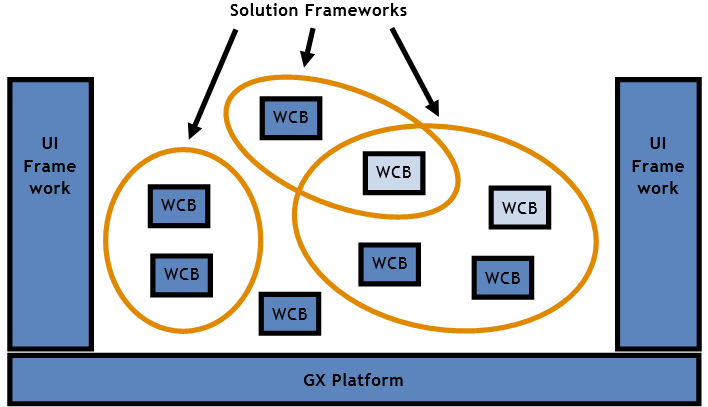...
In XperienCentral, the platform and the components are separated. This allows for a vigorous platform that gives developers the opportunity to easily build solutions or new products on top of the GX platform. The concept of a WebManager Component Bundle (WCB) was introduced in GX WebManager 9. In XperienCentral WCBs are referred to as Plugins. Because the legacy term "WCB" is hard-coded in the XperienCentral platform, you will occasionally see the term "WCB" used throughout the GX documentation. "WCB" is interchangeable with "plugin". GX separates the platform and components for the following reasons:
- With a platform, there is a much clearer distinction between customization and the standard product. By introducing the use of explicit APIs, with which functionalities can be added to the basic platform, the procedure for developers is much clearer. Among other things, this leads to a much more flexible and predictable method of executing updates and migrations than before.
- Partners who want to create their own product with XperienCentral as an OEM product underneath can also do this with the platform strategy.
- With this platform not only partners, but also GX itself, can easily realize new solutions or products.
XperienCentral Components
...
| Code Block | ||
|---|---|---|
| ||
...
public class Activator extends ComponentBundleActivatorBase {
/**
* Creates and returns the bundle definition of the WCBplugin.
* @return the bundle definition of the WCBplugin.
*/
@Override
protected
ComponentBundleDefinition getBundleDefinition() {
ComponentBundleDefinitionImpl componentBundleDefinition =
new ComponentBundleDefinitionImpl();
componentBundleDefinition.setId(WCBConstants.BUNDLE_ID);
componentBundleDefinition.setName(WCBConstants.BUNDLE_NAME);
componentBundleDefinition.setNameSpace(WCBConstants.NAMESPACE_URI);
componentBundleDefinition.setDescription(WCBConstants.BUNDLE_DESCRIPTION);
componentBundleDefinition.setComponentDefinitions(getComponentDefinitions());
return componentBundleDefinition;
}
...
|
...
